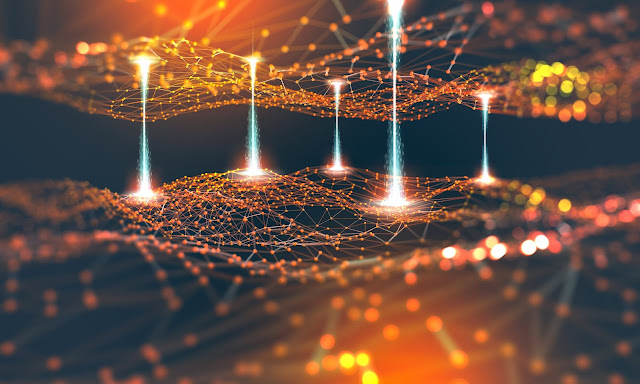It's not every day that we come across a study that tries to rewrite the rules of reality.
However, a physics professor at the University of Minnesota
Duluth named Vitaly Vanchurin attempted to reframe reality in a particularly
eye-opening way in a preprint published on arXiv, arguing that
we're living inside a huge neural network that governs everything around us.
In other words, it's a "possibility that the entire
cosmos on its most fundamental level is a neural network," he stated in
the report.
Physicists have been attempting to reconcile quantum physics
and general relativity for years. The first contends that time is universal and
absolute, whereas the second contends that time is relative and intertwined
with the fabric of space-time.
Vanchurin claims that artificial neural networks can
"display approximate behaviours" of both universal theories in his
article. "It is widely believed that on the most fundamental level, the
entire universe is governed by the rules of quantum mechanics, and even gravity
should somehow emerge from it," he writes, because quantum mechanics
"is a remarkably successful paradigm for modelling physical phenomena on a
wide range of scales."
The paper's discussion states, "We are not merely claiming that artificial neural networks can be beneficial for evaluating physical systems or uncovering physical laws; we are saying that this is how the world around us actually works." "In this regard, it may be viewed as a proposal for a theory of everything, and as such, it should be simple to disprove."
Most physicists and machine learning experts we reached out to declined to comment on the record, citing their mistrust of the paper's results. However, in a Q&A with Futurism, Vanchurin delved deeper into the debate – and revealed more about his concept.
Your paper argues that the universe might
fundamentally be a neural network. How would you explain your reasoning to
someone who didn’t know very much about neural networks or physics?
Vitaly Vanchurin: There are two ways to answer your question.
The first approach is to start with a detailed model of
neural networks and then investigate how the network behaves when there are a
high number of neurons. What I've proved is that quantum mechanics equations
accurately describe the behaviour of a system near equilibrium, while classical
mechanics equations accurately describe the behaviour of a system further away
from equilibrium. Coincidence? Maybe, but quantum and classical mechanics are exactly
how the physical world works, as far as we know.
The second option is to begin with physics. We know quantum
mechanics works well on small sizes and general relativity works well on big
scales, but we have yet to find a way to bring the two theories together in a
coherent framework. This is known as the quantum gravity problem. Clearly,
something major is lacking, but to make matters worse, we have no idea how to
deal with observers. In quantum mechanics, this is known as the measurement
problem, and in cosmology, it is known as the measure problem.
Then one may argue that quantum mechanics, general
relativity, and observers are the three phenomena that need to be united, not
two. The main one, according to 99 percent of physicists, is quantum mechanics,
and everything else should arise from it in some way, but no one understands
how that can be done. In this paper, I propose another possibility: that a
microscopic neural network is the underlying structure from which everything
else emerges, including quantum mechanics, general relativity, and macroscopic
observers. So far, everything appears to be going well.
What first gave you this idea?
To begin, I simply wanted to learn more about deep learning,
therefore I wrote a paper titled "Towards a Theory of Machine
Learning." The original plan was to use statistical mechanics methods to
analyse the behaviour of neural networks, but it turned out that the learning
(or training) dynamics of neural networks are remarkably similar to quantum
dynamics seen in physics under certain limitations. I was on sabbatical leave
at the time (and still am) and decided to investigate the theory that the
physical world is actually a neural network. The concept is insane, but is it
insane enough to be true? That will have to wait and see.
"All that is needed to verify the theory is to uncover
a physical phenomenon which cannot be explained by neural networks," you said
in the paper. What exactly do you mean? Why is it "easier said than
done" in this case?
Well, there are a lot many "theories of
everything," and the vast majority of them must be incorrect. Everything
you see around you is a neural network in my hypothesis, thus all you have to
do to disprove it is find a phenomenon that cannot be explained with a neural
network. But, when you think about it, it's a very difficult undertaking, owing
to our lack of understanding of how neural networks function and how machine
learning works. That is why I attempted to construct a machine learning theory
in the first place.
The concept is insane, but is it insane enough to be true?
That will have to wait and see.
